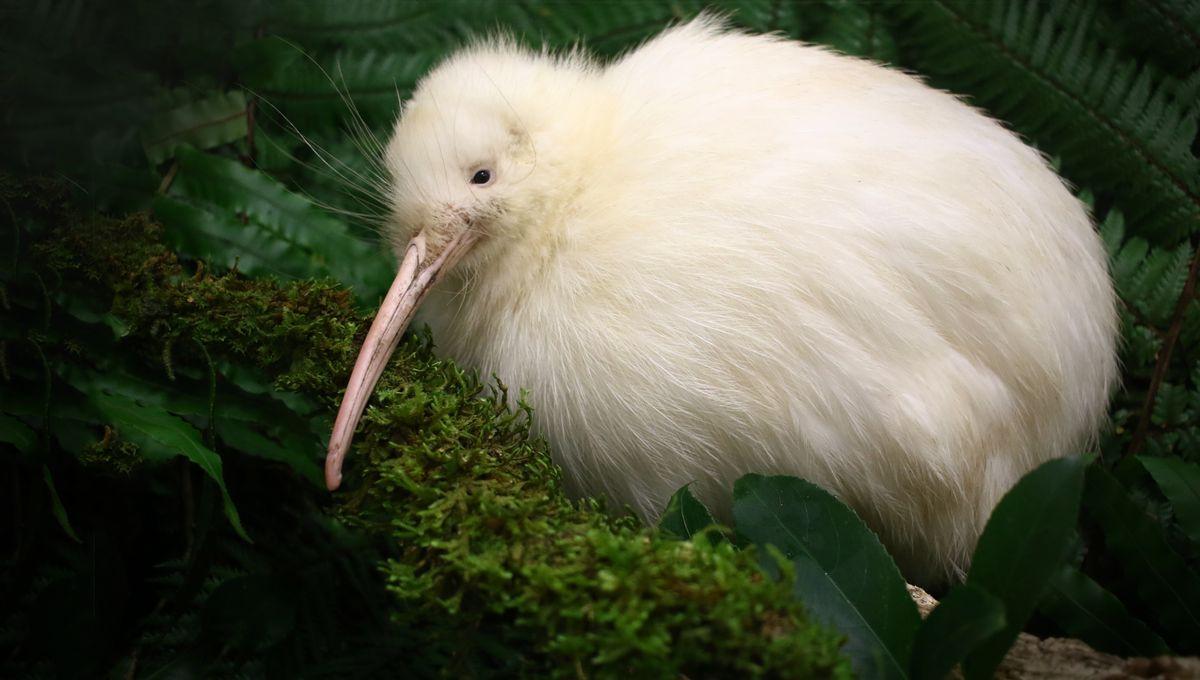At Pūkaha National Wildlife Centre, New Zealand, a little white kiwi has been recorded by one of the rangers trotting back to his burrow in broad daylight. Typically nocturnal birds, the footage has appealed to many online, suggesting he might have been up to no good.
The rest of this article is behind a paywall. Please sign in or subscribe to access the full content. The video shows kiwi male Mapuna, a North Island brown kiwi, one of five species of kiwi, sneaking back through the bush to his burrow. Typically, this species is light brown, but Mapuna’s feathers are snowy white. His sister Manukura also had these white feathers and was the first kiwi to be born with this coloration in captivity anywhere in the world. Manukura was something of a celebrity until her death in 2020. Both Mapuna's and Manukura’s white feathers are caused by a genetic condition. Neither of the birds has red eyes, indicating that they are not albino, but instead have leucism, a condition that causes the partial absence of the pigment melanin from the skin, feathers, and in some cases fur. These shy birds can breed up to three clutches of eggs per year, with each clutch typically containing one to two eggs. Interestingly, the male bird carries out almost all the incubation, which is among the longest durations for any bird species, at between 74 and 84 days. Mapauna and his more typically colored chick. Image courtesy of Tara Swan - Pukaha National Wildlife Centre North Island brown kiwis are classed as Vulnerable by the IUCN, with a population that has severely decreased since 1900. However, various populations have been reintroduced to areas of North Island with low predator densities and on predator-free islands. The introduction of ferrets, cats, and dogs to New Zealand has become the biggest cause of death of the kiwis, particularly smaller young birds. Kiwis are both nocturnal and flightless and have relatively few defenses against predators, making them especially vulnerable. Pūkaha National Wildlife Centre's Operation Nest Egg has led to a program of removing eggs to raise them in protected areas, like the nocturnal house, until the chicks are large enough to be released back into the wild. So far, the center has released 131 birds back into the wild in the last 10 years. 





